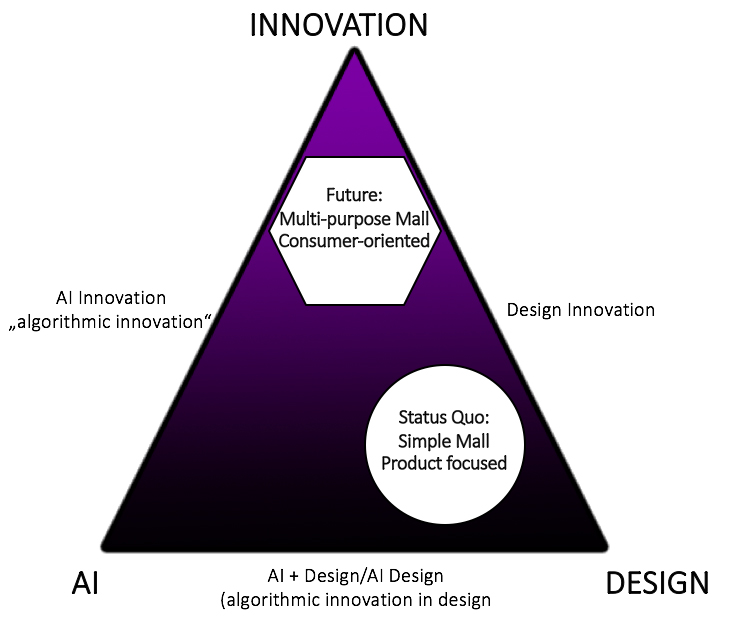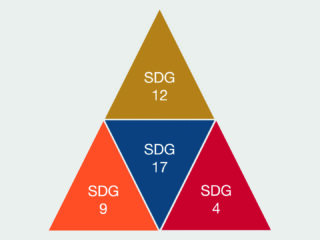Occasional Commerce and AI based Design Innovation are the Savior of Fashion and Commercial Real Estate?
AI Design Competence for more customer experience through better conceptualized occasional commerce strategies
(AI for designing future malls).
Occasional Commerce – Customers shop online and offline.
So what is the relevance of stores in the marketing mix (see Doug Stephens, Article „The Most Important Metric in Retail 2019“ in Business of Fashion) and how can AI (advanced analytics and metrics) be used to streamline and increase the efficiency with better conceptualized shops, malls and commercial real estate.
This is an ongoing research project based on the bachelor thesis on occasional commerce. (more on that below)
Occasional Commerce and AI are the savior of fashion and
commercial real estate?
Exploration of innovations in utilization concepts of real estate with particular focus on luxury fashion
Steadily increased rents, increasing e-commerce, new technologies, changing consumer behavior, such as rigid long-term rental contracts lead to the fall of retail sales and increasing vacancies to the downfall of several malls.
Based on these conditions, this bachelor thesis explores how commercial real estate, retail and the closely related consumers suffer from diverse macro trends and structural upheavals.
The objective of the thesis is, to analyze innovations in utilization concepts of commercial real estate with particular regard on luxury fashion. Therefore, the consideration is mainly focused on malls or similar utilization concepts, whereas also small concepts like pop-up shops are thematised.
Die evaluation of the literature, but also the empirical exploration in form of case studies and expert interviews has revealed that classic utilization concepts of malls are not contemporary and customer needs are only partly included. Factors like innovations, individuality, flexibility, and unique experiences, which are essential for future sustainability of commercial real estate, are missing and only visible in exceptions.
To close this gap, recommendations for actions have been complied, which are focused on newly in-store technologies with the help of artificial intelligence. Aiming at making the offline and online interaction more transparent to track and define the role of a shop within the network towards executives and decision-makers more exactly.
Going into this, there was developed a strategic concept named Occasional Commerce. This concept implements dynamic rental models through new pop-up shops and innovative utilization possibilities, creating new customer appeals. By the integration of AI technologies, the concept can be developed further continuously and orientated steadily on customer needs.
The application of the concept is defined in an own created mall concept, which differs from classy mall concepts by limiting not only on sales of products in its main focus, but focusing so-called Consumer Engagement Spaces (see figure below).

These represent overall customer needs and give a deep curation of the tenant mix. The implemented Maker Space focuses interaction by different renters such as consumers within one test space, equipped with AI technologies, such as advanced analytics and sensors, and optimizes orientated on customers. Aiming at creating newly and overall customer relationships, where the consumer is actively integrated from research, finding ideas to product finalization.



